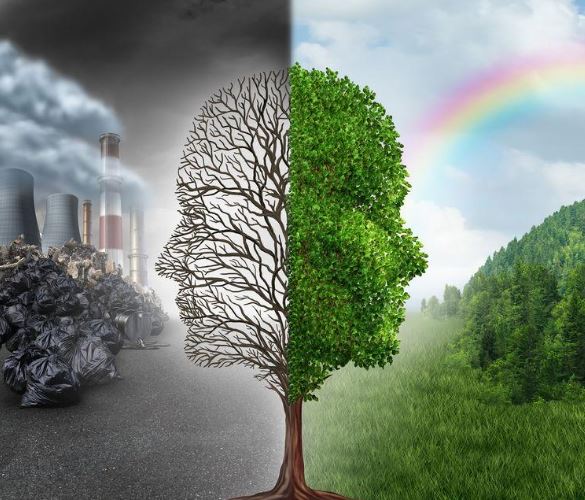Doing business in today’s world involves many considerations. Environmental protection is one of the vital considerations. Business activities have contributed to global warming. Global warming has in turn, affected the environment adversely. For this reason, business entities must adopt sustainable environmental practices. These practices are aimed at protecting the environment from damage.
Global warming has taken a toll on the earth. The climate conditions in every part of the world are changing due to global warming. The environment has been hit by all kinds of disasters. These disasters include drought, heavy rainfall, flash floods, and devastating storms.
Businesses can adopt a few sustainable practices. These practices include energy management and supply tiering. read this article to get more informations about Tier 1, 2 and 3 Suppliers.
Understanding sustainable business practices
In light of the global climate crisis, there is a need for solutions. The solution to the menace is to curb the root cause. The root cause of the problem is greenhouse gas emissions. To restore normalcy to the environment, these emissions have to be reduced. This is what sustainable business practices entail. It is a set of practices aimed at reducing the GHG emissions of corporate entities.
The goal of these practices is to promote the concept of “green business”. Green business simply entails conducting environmentally friendly business activities. Sustainable business practices can be implemented internally and externally.
Internal sustainability
Internal sustainability entails activities done to curb emissions within an organization. These practices may include recycling, energy management, and other activities aimed at reducing emissions. Corporate decisions like a change of energy source are aimed at achieving internal sustainability.
External sustainability
This involves replacing materials that contribute to GHG emissions with environmentally friendly ones. For example, a company may replace a material because the production process involves emissions. This form of sustainability aims to favor environmentally friendly materials over non-friendly ones. Emissions are reduced this way.
Ways to build a sustainable business
Every business needs to develop sustainability policies. It is a requirement in today’s business world. Corporate bodies should imbibe healthy environmental practices. It is as vital as making profits.
More people now pay attention to their environment. People are less likely to patronize a business without sustainable practices. A Deloitte study reports that one out of three people does not patronize a business with unethical practices. This post will highlight some vital environmentally friendly practices.
Employ sustainable sources of energy
Energy consumption is the primary source of GHG emissions. Corporate bodies need an energy supply to go about their business activities. To achieve sustainability, companies need to employ sustainable energy sources. Sustainable energy sources include hydropower, wind, and solar energy. This way, GHG emissions can be reduced to the barest minimum.
Sustainable packaging
Many entities make use of packaging materials. Some of these materials are not eco-friendly. Plastic packaging materials, for example, contribute to GHG emissions. Companies have to do away with such materials to achieve sustainability. They can employ alternative materials. The use of one-time-use plastics may be replaced with paper. Additionally, they can also use recyclable and reusable materials.
Using sustainable materials for packaging can make a significant difference in reducing the environmental impact of a business. Custom shipping boxes for wholesale made from recyclable materials are a great way to promote eco-friendliness while fulfilling business needs. In addition, custom packaging solutions can be a smart way to optimize space and reduce waste in shipping, contributing to financial and environmental savings.
Environmental Certification
Businesses should work towards earning a sustainability certification. There are regulatory bodies that certify businesses as compliant with sustainability regulations. This certification can be earned after implementing other sustainability measures. In addition, customers are more confident about doing business with a sustainability-compliant business.
Ethical Material Sourcing
Firms gunning for sustainability need to pay attention. Materials that contribute to emissions must be replaced with sustainable ones. The materials to be used must meet sustainability requirements. Customers pay attention to these requirements. Failure to comply with them has business implications. Supply tiering is one way of achieving ethical sourcing.
What is Supply Tiering?
The concept of supply tiering is simple. It is an external sustainability method. Tier supply is a way of grouping suppliers into categories. The categories are known as “Tiers.”This is done according to the importance of the materials.
This concept enables businesses to carry out risk assessments. It contributes greatly to sustainability. There are three tiers of suppliers. This article will discuss Tier 1 suppliers.
Understanding Tier 1 suppliers
Among all the vendors in a business’s supply chain, Tier 1 suppliers are perhaps the most crucial. They are the sole vendors in direct contact with corporate entities. Tier 1 suppliers supply the necessary raw materials for a company to make its product. For instance, a food company may classify a farmer as a top-tier supplier.
Firms need to have an understanding of tier suppliers. This is to help them select only sustainable materials for their business. Companies need this to achieve their sustainability goals.
Business dealings around the globe today are demanding. Making profits is no longer the sole purpose of corporate bodies. They must make their money without causing environmental destruction. This can only be achieved by employing sustainable practices.

